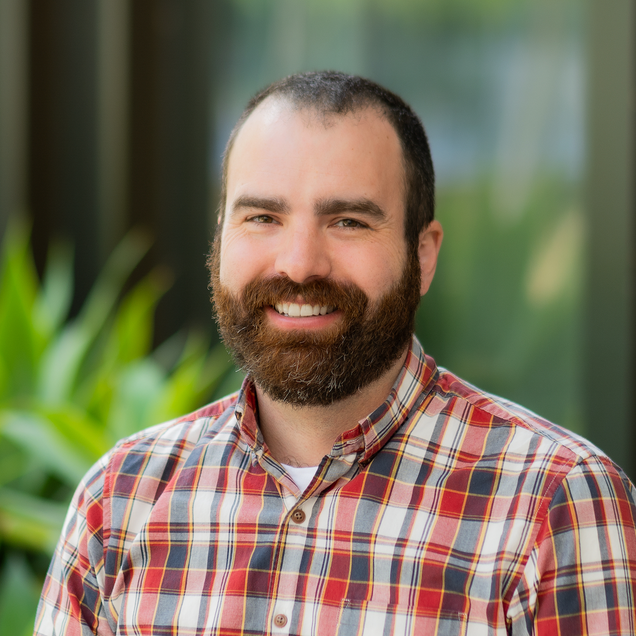Team
Staff Scientists
 Peter Buto is a Research Fellow who graduated from Rollins School of Public Health at Emory University with a master’s degree in epidemiology and a certificate in genetic and molecular epidemiology. Much of his prior experience focused on qualitative research examining racial disparities in the San Francisco Bay Area and the United State’s South. Presently, he is excited to combine his interests in genetic and social epidemiology. Check out one of his publications here!
Peter Buto is a Research Fellow who graduated from Rollins School of Public Health at Emory University with a master’s degree in epidemiology and a certificate in genetic and molecular epidemiology. Much of his prior experience focused on qualitative research examining racial disparities in the San Francisco Bay Area and the United State’s South. Presently, he is excited to combine his interests in genetic and social epidemiology. Check out one of his publications here!
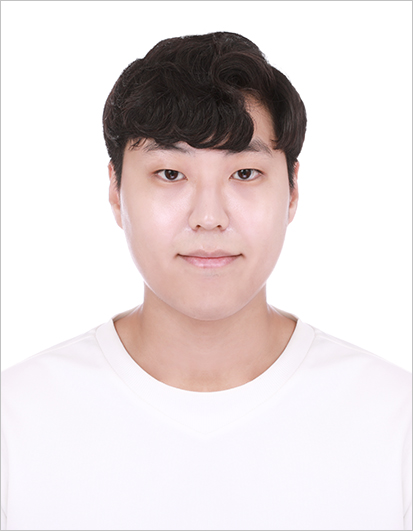
Minhyuk Choi is a research data analyst with a background in epidemiology and biostatistics. He completed his Master’s Degree at Columbia University. He leads complex longitudinal analyses with Electronic Health Records, large biobanks, and genetic data. Joining Dr Glymour’s group has allowed him to learn a lot about the field of dementia and statistical research, collaborate with amazing researchers, and dream about coding at night. Minhyuk is excited to contribute to more meaningful research and make a difference. In his free time he enjoys running, watching comedy, and watching comedy while running.

Annie Pederson is a Research Fellow in the Glymour Group. She graduated from the University of Michigan with a master’s degree in epidemiology and a certificate in genetic epidemiology. Annie supports the Glymour group in grant submissions and is currently working on projects related to measurement error and various risk factors for cognitive aging in older populations. Check out one of her publications here!
 Shelli Vodovozov is a project coordinator reporting to Professor Maria Glymour. She graduated from Case Western Reserve University and is a current Master’s in Public Health candidate at Boston University. Much of her prior experience has focused on maternal health surveillance methods in the United States and cultural barriers to care. She is excited to contribute to Maria’s team and expand her experience in quantitative analysis and coding.
Shelli Vodovozov is a project coordinator reporting to Professor Maria Glymour. She graduated from Case Western Reserve University and is a current Master’s in Public Health candidate at Boston University. Much of her prior experience has focused on maternal health surveillance methods in the United States and cultural barriers to care. She is excited to contribute to Maria’s team and expand her experience in quantitative analysis and coding.
Graduate Students and Post-Docs

Erin Ferguson is an epidemiology PhD student at UCSF. Her dissertation work, under the mentorship of Dr. Glymour, applies econometric methods to evaluate common clinical decisions made in primary care for patients living with Alzheimer’s disease and related dementias. She’s interested in using electronic health record data to answer methodologically challenging questions. In her time at UCSF, she’s also collaborated on projects within the group on cholesterol and dementia, natural language processing to identify social determinants of health in EHR, and specification curve analyses. She is supported by an F31 from NIA “Evaluating routine clinical decisions in providing primary care for people living with Alzheimer’s Disease or Alzheimer’s Related Disorders: using electronic health records to provide timely evidence”. Here is a link to learn more about Erin.
 Sirena Gutierrez recently completed her PhD in Epidemiology and Translational Science at the University of California San Francisco and is now pursuing her postdoctoral fellowship at UCSF. Her research centers on the social determinants of health in older adults across diverse global populations. One aspect of her work involves investigating how school segregation and other features of the schooling environment contribute to racialized disparities in cognitive aging. Her goal is to untangle how different levels of racism interplay across the lifecourse continuum with various social, environmental, and policy factors. Sirena is also focused on understanding how intergenerational socioeconomic resources influence health outcomes in older adults. In her research, she emphasizes the use of causal inference methods and econometric techniques to help triangulate evidence across different research disciplines. She was supported by an F31 from NIA investigating “Racial Disparities in Alzheimer’s Disease and Related Dementias: The Role of School Segregation and Experiences of Discrimination”. Here is a link to learn more about Sirena.
Sirena Gutierrez recently completed her PhD in Epidemiology and Translational Science at the University of California San Francisco and is now pursuing her postdoctoral fellowship at UCSF. Her research centers on the social determinants of health in older adults across diverse global populations. One aspect of her work involves investigating how school segregation and other features of the schooling environment contribute to racialized disparities in cognitive aging. Her goal is to untangle how different levels of racism interplay across the lifecourse continuum with various social, environmental, and policy factors. Sirena is also focused on understanding how intergenerational socioeconomic resources influence health outcomes in older adults. In her research, she emphasizes the use of causal inference methods and econometric techniques to help triangulate evidence across different research disciplines. She was supported by an F31 from NIA investigating “Racial Disparities in Alzheimer’s Disease and Related Dementias: The Role of School Segregation and Experiences of Discrimination”. Here is a link to learn more about Sirena.
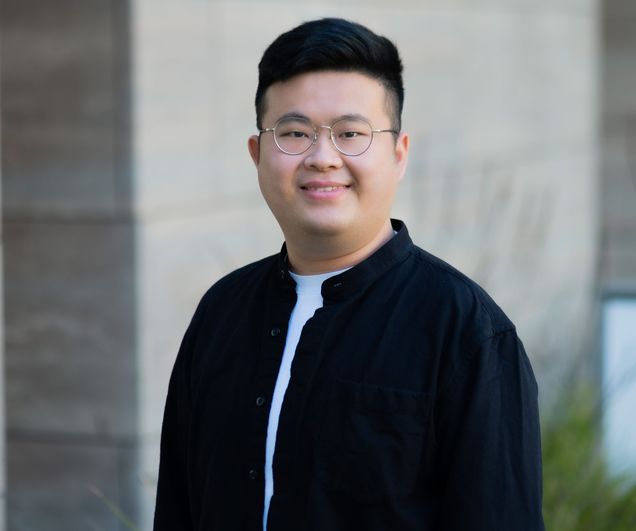 Jingxuan Wang is a PhD student at UCSF and visiting researcher at BU. His interest is in applying causal inference methods to better understand risk factors for dementia and cognitive aging, and ultimately identify modifiable targets for the prevention of dementia. Key areas of my investigation include examining the associations of depression and antidepressants, COVID-19, cancer, and preclinical biomarkers of AD with dementia risk and cognitive decline. The other line of my research involves addressing methodological challenges in dementia and cognitive aging research, with a particular focus on applying epidemiologic methods to observation studies based on electronic health records (EHR) data. He is supported by an F99/K00 from NIA investigating “The Impact of SARS-CoV-2 Infection and Vaccination on the Risk of Alzheimer’s Disease and Related Dementias”. Here is a link to learn more about Jingxuan.
Jingxuan Wang is a PhD student at UCSF and visiting researcher at BU. His interest is in applying causal inference methods to better understand risk factors for dementia and cognitive aging, and ultimately identify modifiable targets for the prevention of dementia. Key areas of my investigation include examining the associations of depression and antidepressants, COVID-19, cancer, and preclinical biomarkers of AD with dementia risk and cognitive decline. The other line of my research involves addressing methodological challenges in dementia and cognitive aging research, with a particular focus on applying epidemiologic methods to observation studies based on electronic health records (EHR) data. He is supported by an F99/K00 from NIA investigating “The Impact of SARS-CoV-2 Infection and Vaccination on the Risk of Alzheimer’s Disease and Related Dementias”. Here is a link to learn more about Jingxuan.
 Whitney Wells is a social epidemiologist currently completing a PhD at UCSF in Epidemiology & Translational Sciences. Her research focuses on social determinants of health across the life course, especially the impacts of social safety net policies and education policy. She is interested in quasi-experimental methods to examine the impact of social policies on population health, to build evidence for policies that reduce health disparities. Here is a link to learn more about Whitney.
Whitney Wells is a social epidemiologist currently completing a PhD at UCSF in Epidemiology & Translational Sciences. Her research focuses on social determinants of health across the life course, especially the impacts of social safety net policies and education policy. She is interested in quasi-experimental methods to examine the impact of social policies on population health, to build evidence for policies that reduce health disparities. Here is a link to learn more about Whitney.

Mary Thoma is a PhD Student whose research focuses on social isolation and other risk factors of cognitive decline and dementia. I am particularly interested in using modern causal inference methods to explore plausible causal pathways from isolation to dementia, such as through decreased cognitive stimulation, changes in psychosocial well-being (loneliness and depression), and associations with related risk factors such as sensory impairment (vision and hearing loss). Here is a link to learn more about Mary.
 Silvia holds a BA in Applied Math and a Master’s in Information & Data Science from UC Berkeley. After working in computer vision for cancer and Alzheimer’s Disease, she now focuses on understanding how comorbidities and social determinants of health influence the progression from mild cognitive impairment to dementia. Her work integrates advanced informatics techniques with social epidemiology and causal inference to enhance diagnostics and better understand disease progression through electronic medical records.
Silvia holds a BA in Applied Math and a Master’s in Information & Data Science from UC Berkeley. After working in computer vision for cancer and Alzheimer’s Disease, she now focuses on understanding how comorbidities and social determinants of health influence the progression from mild cognitive impairment to dementia. Her work integrates advanced informatics techniques with social epidemiology and causal inference to enhance diagnostics and better understand disease progression through electronic medical records.
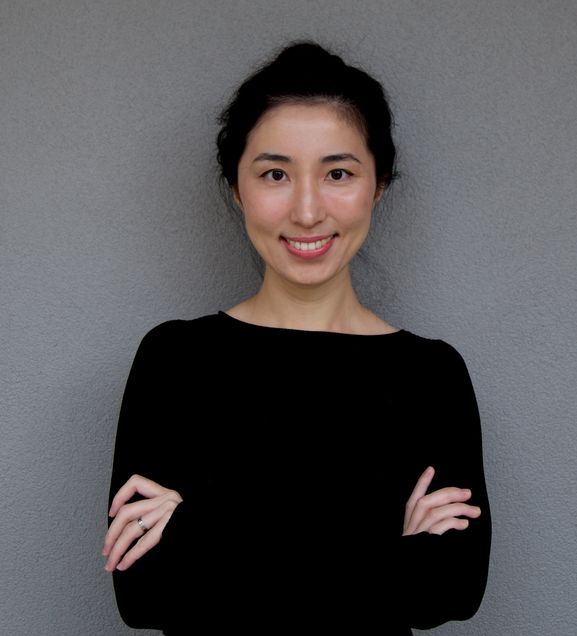 Yulin Yang is an interdisciplinary researcher of population health, aging and life course. He research interests include medical sociology, health disparities, aging and life course, urban studies and immigration, and quantitative methods. The overarching goal of Yulin’s research is to understand multilevel social determinants of pain and cognitive aging.
Yulin Yang is an interdisciplinary researcher of population health, aging and life course. He research interests include medical sociology, health disparities, aging and life course, urban studies and immigration, and quantitative methods. The overarching goal of Yulin’s research is to understand multilevel social determinants of pain and cognitive aging.
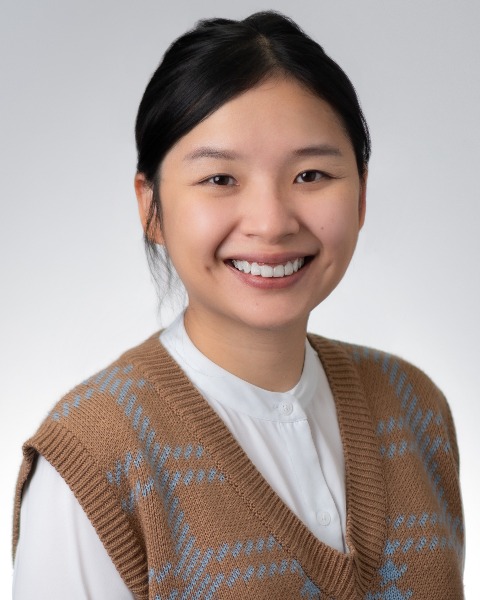 Ruijia Chen is a social epidemiologist, whose research focuses on social determinants across the life course that contribute to risk and disparities associated with Alzheimer’s disease and related dementia. She is particularly interested in applying modern causal inference methods to examine individual- and structural- level social determinants of health. Additionally, Ruijia is interested in investigating methodological challenges that affect our understanding of longitudinal cognitive changes. Dr. Chen is supported by an F99/K00 fellowship from NIA entitled “Lifecourse Stressors and Social Disparities in Cognitive Aging: The Roles of Social Networks and Sleep Disturbance”. Here is a link to learn more about Ruijia.
Ruijia Chen is a social epidemiologist, whose research focuses on social determinants across the life course that contribute to risk and disparities associated with Alzheimer’s disease and related dementia. She is particularly interested in applying modern causal inference methods to examine individual- and structural- level social determinants of health. Additionally, Ruijia is interested in investigating methodological challenges that affect our understanding of longitudinal cognitive changes. Dr. Chen is supported by an F99/K00 fellowship from NIA entitled “Lifecourse Stressors and Social Disparities in Cognitive Aging: The Roles of Social Networks and Sleep Disturbance”. Here is a link to learn more about Ruijia.
Faculty
 Tanisha Hill-Jarrett, PhD, is a neuropsychologist and an assistant professor of neurology at the UCSF Memory and Aging Center. Her research applies intersectionality theory to understand how psychosocial stressors and structural racism and sexism impact Black women’s cognitive aging and confer risk for Alzheimer’s disease and related dementias (ADRD). She is additionally interested in improving the measurement and tracking of adverse social exposures to better understand how they shape cognitive aging trajectories and association with incident ADRD among Black older adults. As a scientist and clinician, she is committed to making wellness and brain health accessible and participates in the Memory and Aging Center Black/African American Community Outreach Team. Dr. Hill-Jarrett uses Afrofuturism in her community-based work with Black women as a framework to create counternarratives and reimage the future through a lens of hope and equity. She seeks to incorporate Afrofuturism as a tool for brain health among community-dwelling Black elders and a praxis that drives social change and centers on aging Black women. Here is a link to learn more about Dr. Hill-Jarrett.
Tanisha Hill-Jarrett, PhD, is a neuropsychologist and an assistant professor of neurology at the UCSF Memory and Aging Center. Her research applies intersectionality theory to understand how psychosocial stressors and structural racism and sexism impact Black women’s cognitive aging and confer risk for Alzheimer’s disease and related dementias (ADRD). She is additionally interested in improving the measurement and tracking of adverse social exposures to better understand how they shape cognitive aging trajectories and association with incident ADRD among Black older adults. As a scientist and clinician, she is committed to making wellness and brain health accessible and participates in the Memory and Aging Center Black/African American Community Outreach Team. Dr. Hill-Jarrett uses Afrofuturism in her community-based work with Black women as a framework to create counternarratives and reimage the future through a lens of hope and equity. She seeks to incorporate Afrofuturism as a tool for brain health among community-dwelling Black elders and a praxis that drives social change and centers on aging Black women. Here is a link to learn more about Dr. Hill-Jarrett.
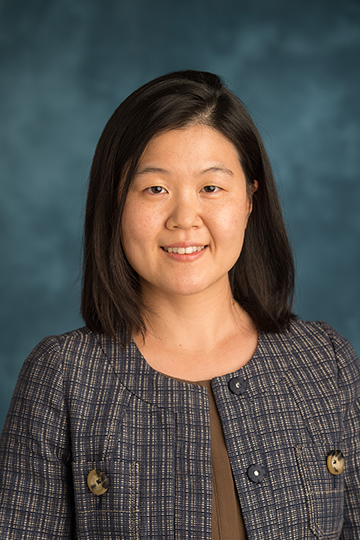 Min Hee was a postdoctoral fellow at the UCSF Philip R. Lee Institute for Health Policy Studies who will soon start a position at Rutgers University and a current K99/R00 scholar of the National Institute on Aging on the project “Racial Disparities in Delayed Dementia Diagnosis: Structural Determinants and Validation of Timeliness Measures.” My overarching research goal is to identify and advocate for structural solutions for equity in dementia prevention, diagnosis, and care. To that end, my research describes and evaluates place-based characteristics that influence health and healthcare quality among older adults and examines how policy-induced place-based exposures influence health across the life course. She collaborates with Glymour Group members to bridge studies of social determinants of health and health service research by advancing theoretical understanding of how health inequities in dementia and its diagnosis manifest at the population level and improving methodological rigor in the social epidemiology of aging.
Min Hee was a postdoctoral fellow at the UCSF Philip R. Lee Institute for Health Policy Studies who will soon start a position at Rutgers University and a current K99/R00 scholar of the National Institute on Aging on the project “Racial Disparities in Delayed Dementia Diagnosis: Structural Determinants and Validation of Timeliness Measures.” My overarching research goal is to identify and advocate for structural solutions for equity in dementia prevention, diagnosis, and care. To that end, my research describes and evaluates place-based characteristics that influence health and healthcare quality among older adults and examines how policy-induced place-based exposures influence health across the life course. She collaborates with Glymour Group members to bridge studies of social determinants of health and health service research by advancing theoretical understanding of how health inequities in dementia and its diagnosis manifest at the population level and improving methodological rigor in the social epidemiology of aging.
Former Staff, Mentees, Students, and Post-docs
Sarah Ackley (Brown)
Elizabeth Rose Mayeda (UCLA)
Paola Gilsanz (Kaiser Permanente)
Marilyn Thomas (UCSF)
